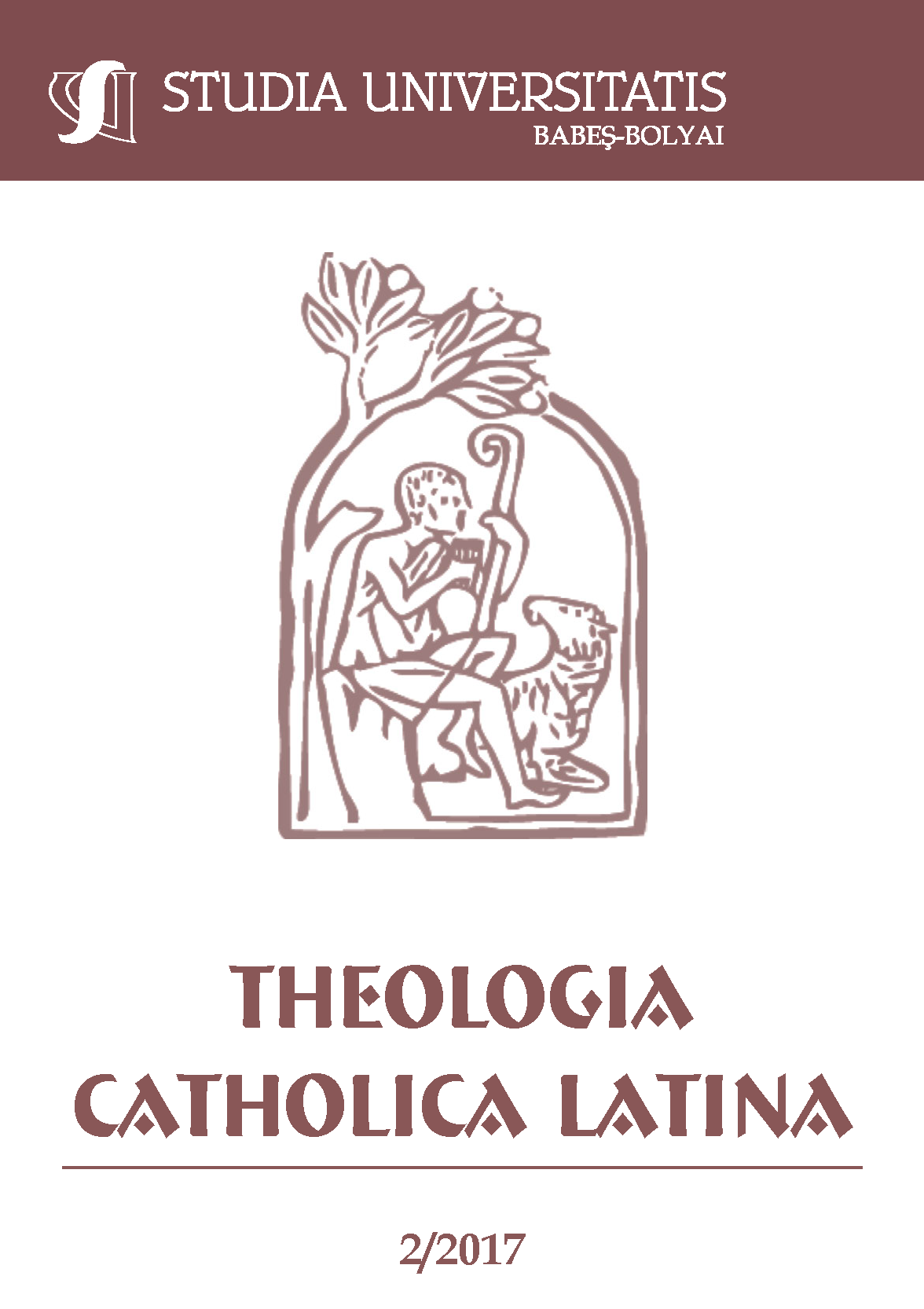EMBODIMENT: THE INCARNATION OF FEELINGS IN LANGUAGE
DOI:
https://doi.org/10.24193/theol.cath.latina.2017.LXII.2.05Keywords:
cognitive metaphor, embodiment, impressional representation, emotions, semantics of depression.Abstract
Abstract concepts, but human experiences too, are constructed in language through the process of metaphorical mapping between a source domain and a target domain. One of the most basic sources of humans is the corporeal experience. Cognitive metaphors help us understand reality, but they also limit us. Some elements of the source domain are used, and their importance is amplified in the target domain, and some elements of the source domain are never used, these would remain hidden. This present study proposes a different modality of understanding emotionality expressed through language. A case study will help us present the new concept of “impressional representation”, described by Sándor Szilágyi N.References
Banczerowski, Janusz, “A pozitív érzelmek konceptualizalásának néhány kérdése”, in Magyar Nyelvőr, 2005, 71–78.
Crawford, L.E., „Conceptual Metaphors of Affect”, in Emotion Review, 2009, 1/2, 129–139.
Kövecses Zoltán, A metafora. Gyakorlati bevezetés a kognitív metaforaelméletbe, Budapest, 2005.
Kövecses Zoltán – Benczes Réka, Kognitív nyelvészet, Budapest, 2010.
Lakoff, George – Johnson, Mark, “The Metaphorical Structure of the Human Coceptual System”, in Cognitive Science 4, 1980, 195–208 (198).
Längle, Alfried, “Depression oder Selbst-Pression? Existenzanalytische Grundstrukturen und Therapie psychogener und noogener Depressionsformen.”, in Längle, A., Funke, G. (Hg.), Mut und Schwermut, Existenzanalyse der Depression. Tagungsbericht der GLE, 1987, Nr. 3/87, 94–128.
Längle, Alfried, “Ce anume îl mișcă pe om? Motivația existențială a persoanei.”, in Analiza Existențială 2, 1-2, 2000, 18–31.
Längle, Alfried, “Emotionality – An Existential-Analytical Understanding and Practice”, in Trnka, R, Balcar K, Kuska M (Eds.), Re-Constructing Emotional Spaces. From Experience to Regulation, Prague, 2011, 41–62 (44).
Szilágyi N. Sándor, “Hangulatfestés – de mit is festünk?”, in Kádár Edit and Szilágyi N. Sándor (eds.), Motiváltság és nyelvi ikonicitás. Erdélyi Múzeum-Egyesület, Kolozsvár, 2015, 23–42.
Wierzbicka, Anna, Emotions Across Languages and Cultures: Diversity and Universals, Cambridge University Press, Paris, 2005 http://www.fdavidpeat.com/ideas/langling.htm#psycho. [September 05, 2013.]
Downloads
Published
How to Cite
Issue
Section
License
Copyright (c) 2017 Studia Universitatis Babeș-Bolyai Theologia Catholica Latina

This work is licensed under a Creative Commons Attribution-NonCommercial-NoDerivatives 4.0 International License.



